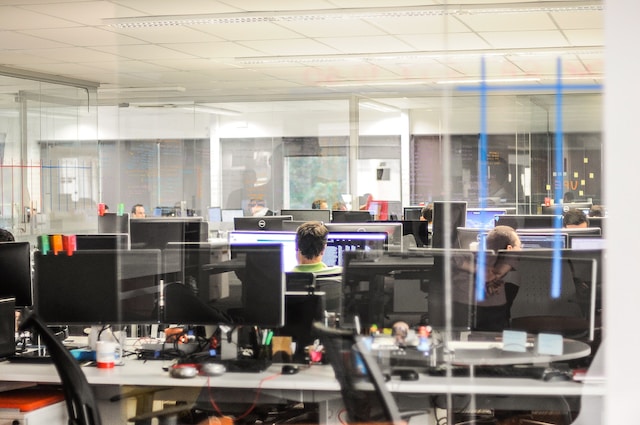Security Analyst vs. Security Engineer
Security Analyst vs Security Engineer: A Comprehensive Comparison

Table of contents
In the ever-evolving landscape of cybersecurity, two pivotal roles stand out: Security Analyst and Security Engineer. While both positions are crucial for safeguarding an organization’s digital assets, they differ significantly in their responsibilities, skill sets, and career paths. This article delves into the nuances of each role, providing a detailed comparison to help aspiring cybersecurity professionals make informed career choices.
Definitions
Security Analyst: A Security Analyst is primarily responsible for Monitoring, detecting, and responding to security incidents within an organization. They analyze security breaches, assess vulnerabilities, and implement measures to protect sensitive data.
Security Engineer: A Security Engineer focuses on designing and implementing security systems and infrastructure. They build secure networks, develop security protocols, and ensure that the organization’s IT environment is fortified against potential threats.
Responsibilities
Security Analyst Responsibilities:
- Monitor security alerts and logs for suspicious activity.
- Conduct vulnerability assessments and penetration testing.
- Respond to security incidents and perform forensic analysis.
- Develop and implement security policies and procedures.
- Collaborate with IT teams to ensure Compliance with security standards.
- Prepare reports on security incidents and recommend improvements.
Security Engineer Responsibilities:
- Design and implement security architectures and frameworks.
- Configure and maintain security tools and technologies (e.g., Firewalls, intrusion detection systems).
- Conduct risk assessments and threat modeling.
- Develop and enforce security policies and best practices.
- Collaborate with software developers to integrate security into the software development lifecycle (SDLC).
- Stay updated on the latest security trends and technologies.
Required Skills
Skills for Security Analysts:
- Strong analytical and problem-solving skills.
- Proficiency in security information and event management (SIEM) tools.
- Knowledge of network protocols and security technologies.
- Familiarity with Incident response and forensic analysis.
- Excellent communication skills for reporting and collaboration.
Skills for Security Engineers:
- In-depth knowledge of Network security architecture and design.
- Proficiency in programming and scripting languages (e.g., Python, Java).
- Experience with security tools (e.g., firewalls, VPNs, IDS/IPS).
- Strong understanding of Encryption, authentication, and access control mechanisms.
- Ability to conduct threat modeling and risk assessments.
Educational Backgrounds
Security Analyst:
- A bachelor’s degree in Computer Science, Information Technology, Cybersecurity, or a related field is typically required.
- Certifications such as CompTIA Security+, Certified Information Systems Security Professional (CISSP), or Certified Ethical Hacker (CEH) can enhance job prospects.
Security Engineer:
- A bachelor’s degree in Computer Science, Information Technology, or a related field is essential, with many positions preferring a master’s degree.
- Relevant certifications include Certified Information Systems Security Professional (CISSP), Certified Information Security Manager (CISM), and Cisco Certified Network Associate (CCNA) Security.
Tools and Software Used
Tools for Security Analysts:
- Security Information and Event Management (SIEM) tools (e.g., Splunk, LogRhythm).
- Vulnerability assessment tools (e.g., Nessus, Qualys).
- Incident response tools (e.g., TheHive, GRR Rapid Response).
- Forensic analysis tools (e.g., EnCase, FTK).
Tools for Security Engineers:
- Firewalls and Intrusion detection/prevention systems (e.g., Palo Alto, Snort).
- Encryption tools (e.g., OpenSSL, VeraCrypt).
- Network monitoring tools (e.g., Wireshark, Nagios).
- Configuration management tools (e.g., Ansible, Puppet).
Common Industries
Both Security Analysts and Security Engineers are in demand across various industries, including: - Financial Services - Healthcare - Government and Defense - Technology and Software Development - Retail and E-commerce - Telecommunications
Outlooks
The demand for cybersecurity professionals continues to grow, driven by increasing cyber threats and regulatory requirements. According to the U.S. Bureau of Labor Statistics, employment for information security analysts is projected to grow by 31% from 2019 to 2029, much faster than the average for all occupations. Security Engineers also enjoy strong job prospects, with a similar growth trajectory.
Practical Tips for Getting Started
- Gain Relevant Experience: Start with internships or entry-level positions in IT or cybersecurity to build foundational skills.
- Pursue Certifications: Obtain industry-recognized certifications to enhance your credibility and knowledge.
- Network with Professionals: Join cybersecurity forums, attend conferences, and connect with professionals on platforms like LinkedIn.
- Stay Informed: Follow cybersecurity news, blogs, and podcasts to keep up with the latest trends and threats.
- Develop Technical Skills: Learn programming languages and familiarize yourself with security tools to strengthen your technical expertise.
In conclusion, both Security Analysts and Security Engineers play vital roles in protecting organizations from cyber threats. By understanding the differences in their responsibilities, skills, and career paths, aspiring cybersecurity professionals can make informed decisions about their future in this dynamic field. Whether you choose to pursue a career as a Security Analyst or a Security Engineer, the opportunities for growth and advancement are abundant in the world of cybersecurity.
Sr. Cybersecurity Engineer, IAM(ForgeRock)
@ Visa | Austin, TX, United States
Full Time Senior-level / Expert USD 139K - 202KDomain Consultant 2 ( Network Security )
@ Palo Alto Networks | D.C. , Washington , United States
Full Time Senior-level / Expert USD 198K - 273KOperations Analyst Senior
@ General Dynamics Information Technology | USA GA Robins AFB - Robins AFB (GAC011), United States
Full Time Senior-level / Expert USD 76K - 103KElectronic Warfare Supervisor (EWS) Tactical Trainer at SCSTC Det Southwest-San Diego, CA
@ General Dynamics Information Technology | USA CA San Diego - SCSTC Det SW (CAC147), United States
Full Time Mid-level / Intermediate USD 68K - 92KDevSecOps Lead Software Engineer
@ Boeing | USA - El Segundo, CA, United States
Full Time Senior-level / Expert USD 130K - 177K